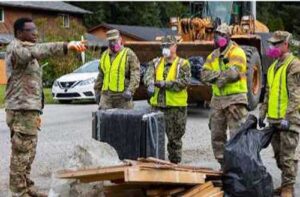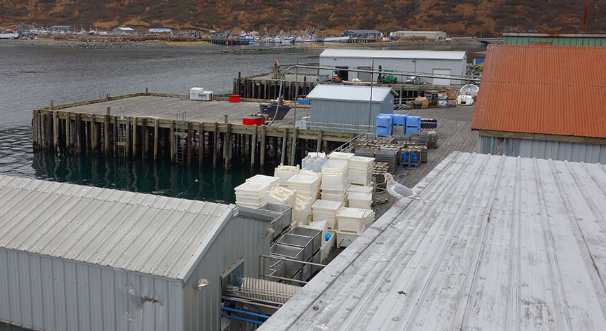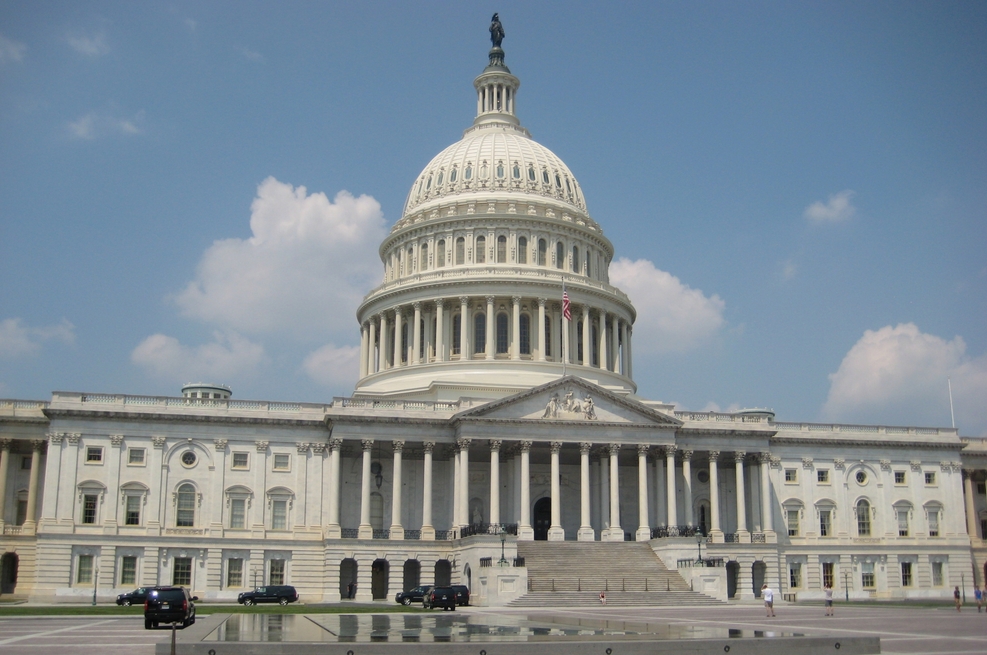
JOINT BASE ELMENDORF-RICHARDSON, Alaska — On September 5, 1984, former Alaska Governor Bill Sheffield declared the day as Naval Militia Day, recognizing the Alaska Naval Militia’s crucial role in the state’s defense and emergency response.
This year marks four decades since that proclamation, highlighting the Alaska Naval Militia as a key part of Alaska’s defense and emergency response efforts.
“Over the past few decades, the Alaska Naval Militia has built a legacy of dedication and service,” said ANM Chief of Staff, Cmdr. (AK) Dave Allen. “Our members have consistently shown their commitment to the safety and well-being of Alaskans, whether through disaster response, community support, or national defense.”
Recognized under Title 10 of the U.S. Code and Title 26 of the Alaska State Statute, the ANM is one of seven Naval Militias across the U.S., and includes Navy and Marine reservists and a small number of retirees who volunteer to serve Alaskans.
Like the National Guard, the ANM can be activated by the governor to support state and local authorities during natural disasters or other emergencies. The organization is aligned under the Alaska Department of Military & Veterans Affairs for state administrative support.
The ANM initially began on March 20, 1970, but soon disbanded in March 1972. Since being re-established in 1984, its members have volunteered in numerous responses, training events, and exercises.
“ANM members participate in joint exercises such as Vigilant Guard 2024, designed to test military operational capabilities in coordination with state and city efforts during major disasters,” said Allen. “Floods, fires, avalanches, landslides, typhoons, oil spills, pandemics – you name it, we have responded.”
Recently, 63 members of the Alaska Organized Militia, including one from the ANM, responded to assist Juneau with disaster debris removal following the August 6, 2024, glacial outburst flood. In 2022, the ANM joined fellow AKOM members in responding to the Bear Mountain Landslide near Seward and Typhoon Merbok in western Alaska. They also supported the COVID-19 pandemic, assisting with traffic control at testing sites in Anchorage and harbor operations in Kodiak.
Other noteworthy contributions include assisting with the 2019 Swan Lake Fire response on the Kenai Peninsula, participating in recovery efforts after the 1989 Exxon Valdez oil spill, supporting Alaska’s Arctic Care operations and participating in the Alaska National Guard’s annual Operation Santa Claus. The unit also maintains honor guard teams to provide military funeral honors for Navy veterans across Alaska.
“Our deep integration within local communities is one of our greatest strengths,” said Allen. “Our members understand Alaska’s unique challenges and needs, and they know the coastline, waterways, and people who live and work here.”
While state missions differ from active-duty tasks, overlapping areas include inshore boat operations, maritime patrol, port security, harbor defense, surveillance, medical services, and emergency construction.
“We enhance maritime and port security in Alaska, but our training covers various areas, from navigation to military medicine,” said Allen. “The ANM can help safeguard ports, coastal regions, and waterways against threats and rapidly deploy in times of crisis, whether it’s search and rescue, disaster relief, or medical support.”
According to Allen, the ANM prides itself on being a ready force able to assist Alaskans on their worst day.
“ANM is well-prepared to respond promptly and effectively, working hand in hand with state and local authorities to protect Alaskans,” said Allen. “In an ever-changing world where emergencies can arise unexpectedly, the Alaska Naval Militia remains a versatile and invaluable asset, ready to meet the state’s diverse needs.”
###[content id=”79272″]








